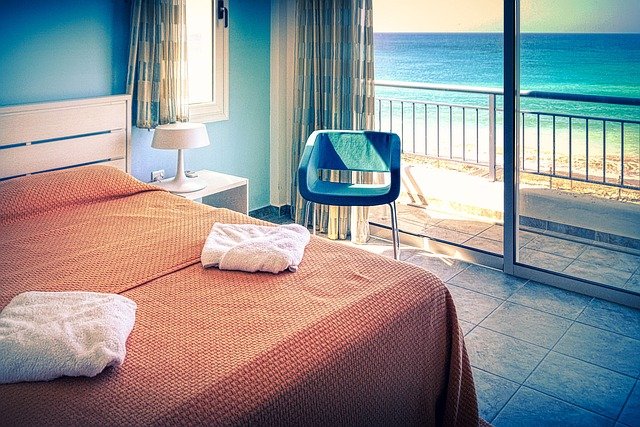Booked a Hotel? Watch Out for These Travel Mistakes That Could Cost You
From fake bookings to unexpected charges, hotel-related travel headaches are more common than you think. Learn how to spot shady practices early, why it’s smart to know your travel protections, and what to do if things go wrong during your stay at the hotel.

What are the most common hotel booking traps to avoid?
One of the biggest mistakes travelers make is falling for deceptive online deals. Be wary of websites offering unbelievably low rates, as they may be fraudulent or have hidden catches. Always book through reputable platforms or directly with the hotel. Another trap is failing to read the fine print. Many travelers overlook cancellation policies, resort fees, or additional charges for amenities, leading to unexpected costs.
Furthermore, be cautious of fake reviews or misleading photos. Some unscrupulous properties may use outdated or edited images to make their accommodations appear more appealing. Always cross-reference reviews from multiple sources and look for recent, verified guest feedback to get a more accurate picture of what to expect.
How can you protect yourself from unexpected hotel charges?
To avoid surprise fees, always ask for a detailed breakdown of charges before confirming your reservation. This includes inquiring about resort fees, parking costs, and any additional taxes that may not be initially displayed in the room rate. It’s also wise to request written confirmation of any special requests or rate agreements you’ve made with the hotel.
Upon check-in, carefully review the terms presented and ask about any potential additional charges. Some hotels may place a hold on your credit card for incidentals, which can tie up your funds. Understanding this policy in advance can help you budget more effectively for your trip.
What should you know about hotel cancellation policies?
Cancellation policies can vary widely between hotels and booking platforms. Some offer free cancellation up to 24 hours before check-in, while others may require several days’ notice or charge a fee regardless of when you cancel. In the era of unpredictable travel conditions, it’s crucial to understand these policies before booking.
Consider opting for flexible rates if your travel plans are uncertain. While these may be slightly more expensive upfront, they can save you money in the long run if you need to change or cancel your reservation. Always keep a record of your cancellation, including confirmation numbers and agent names, in case of any disputes.
How can you ensure your personal safety at a hotel?
Your safety checklist should begin before you even arrive at the hotel. Research the neighborhood and read recent reviews about the property’s security measures. Once you’re there, always use the peephole before opening your door and keep it locked, including any additional security features like chain locks.
Be discreet when handling your room key and avoid saying your room number out loud in public areas. It’s also wise to store valuables in the room safe or at the front desk. If you’re uncomfortable with your room’s location or have any security concerns, don’t hesitate to request a room change from the hotel staff.
What are some insider tips for a better hotel experience in the USA?
When traveling in the United States, take advantage of loyalty programs offered by major hotel chains. These can provide perks like room upgrades, late check-outs, or complimentary breakfasts. Additionally, joining AAA (American Automobile Association) can often net you discounts at many hotels across the country.
For a more personalized experience, consider staying at boutique hotels or bed and breakfasts, which often provide unique amenities and local insights. If you’re visiting during peak seasons or major events, book well in advance to secure better rates and availability. Lastly, don’t underestimate the power of polite interaction with hotel staff – a friendly demeanor can often lead to better service and potential perks.
How do hotel rates compare across different booking platforms?
When it comes to finding the best hotel deals, it’s crucial to compare rates across various platforms. Here’s a comparison of average nightly rates for a standard room in a mid-range hotel in major US cities:
| Booking Platform | New York City | Los Angeles | Chicago |
|---|---|---|---|
| Hotels.com | $180 | $155 | $140 |
| Expedia | $185 | $160 | $145 |
| Booking.com | $175 | $150 | $138 |
| Direct Hotel Book | $170 | $145 | $135 |
Prices, rates, or cost estimates mentioned in this article are based on the latest available information but may change over time. Independent research is advised before making financial decisions.
As the table shows, direct booking with hotels often offers the most competitive rates. However, third-party sites may offer package deals or loyalty points that could provide better overall value. Always compare total costs, including taxes and fees, across multiple platforms before making your final decision.
In conclusion, being an informed traveler is key to avoiding costly mistakes when booking and staying at hotels. By staying vigilant about potential traps, understanding policies, prioritizing safety, and comparing rates effectively, you can ensure a more enjoyable and economical travel experience. Remember that a little research and preparation can go a long way in preventing travel headaches and unexpected expenses.




